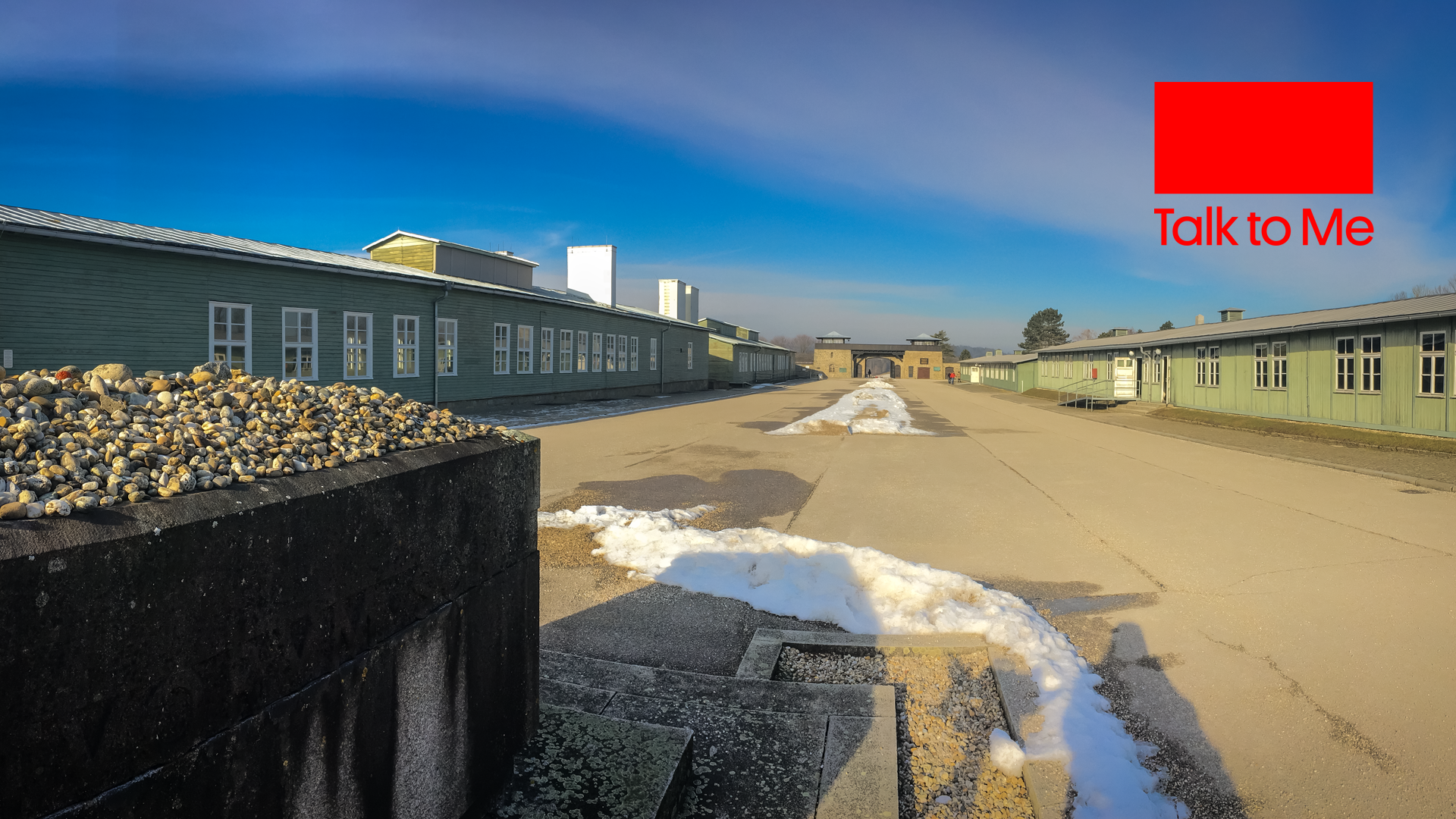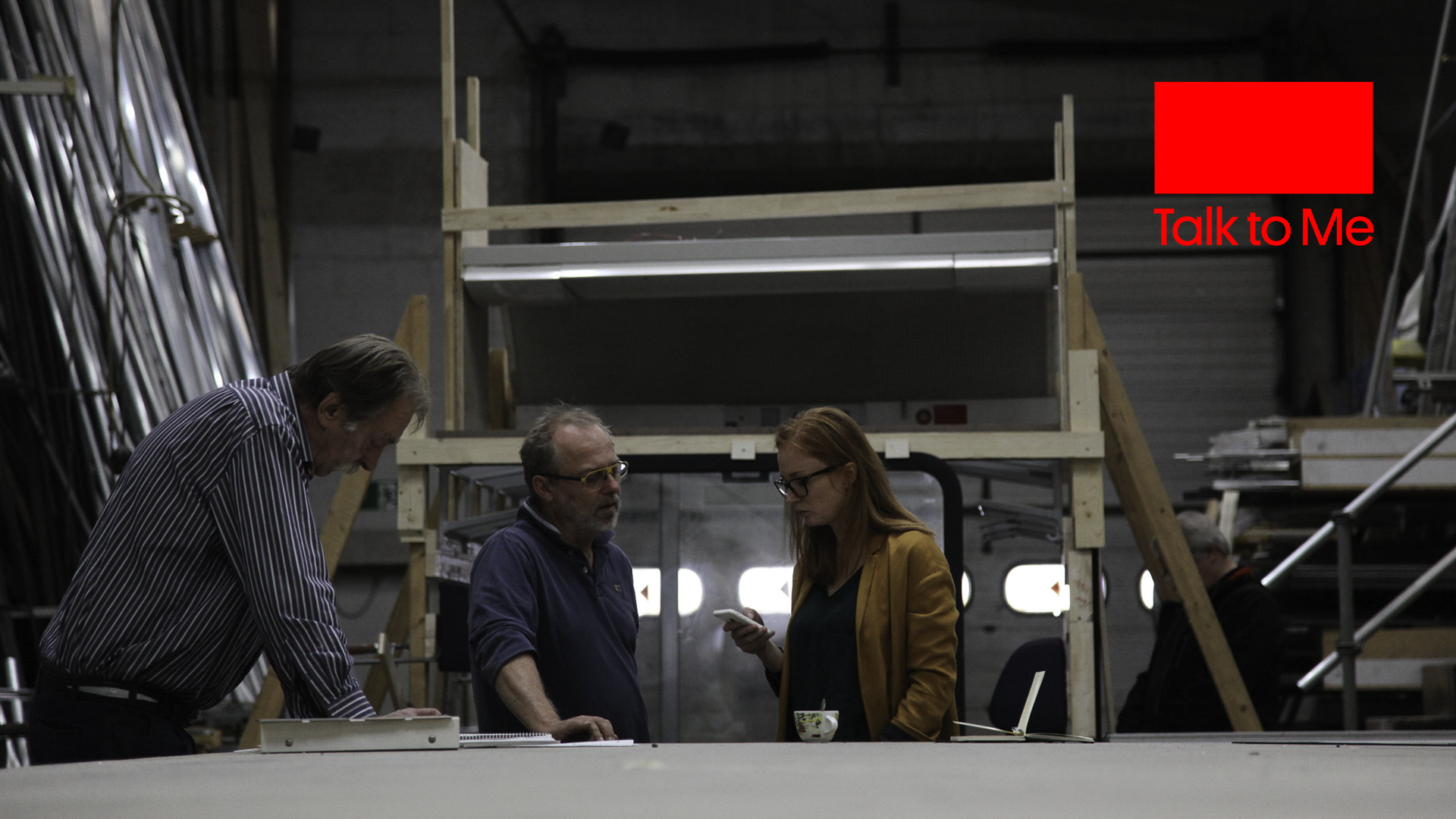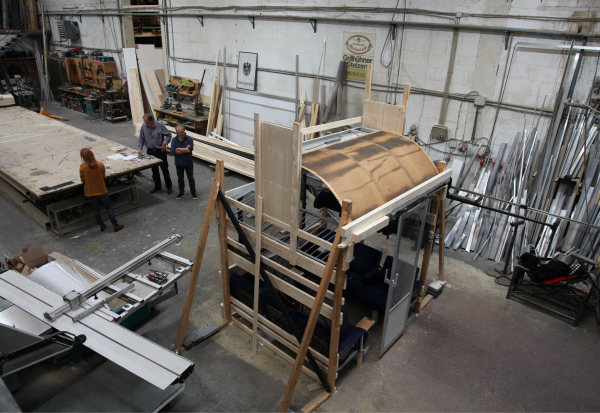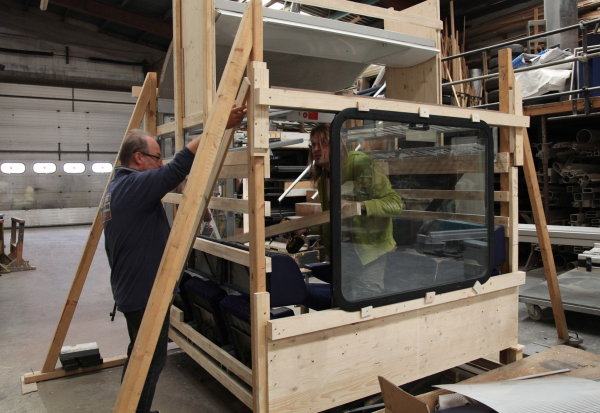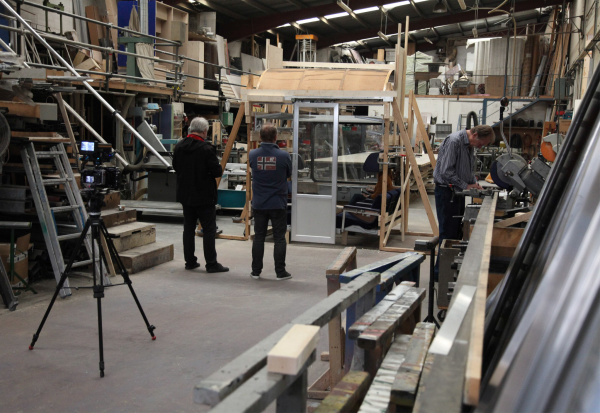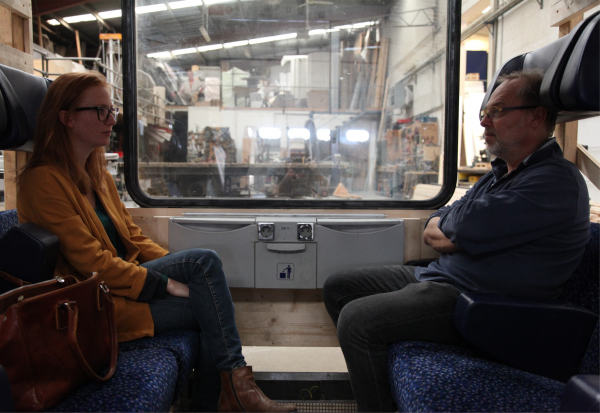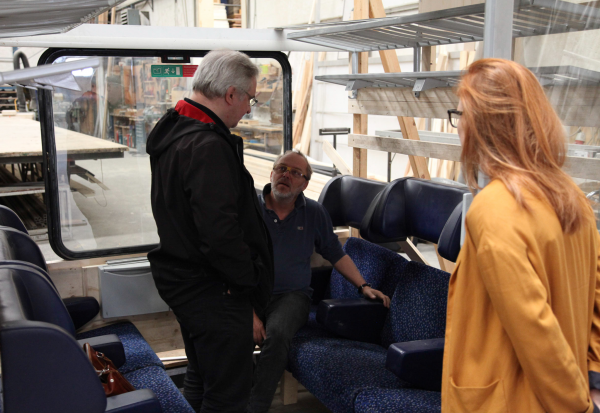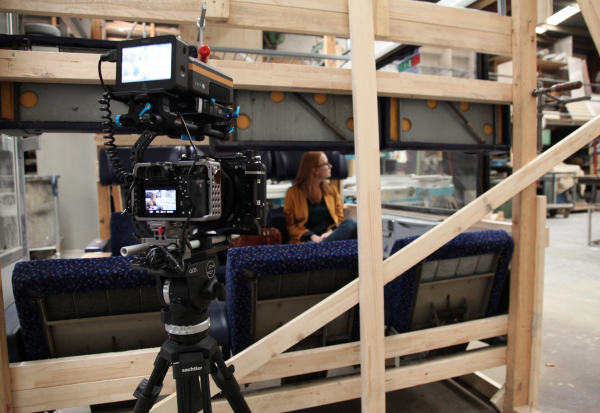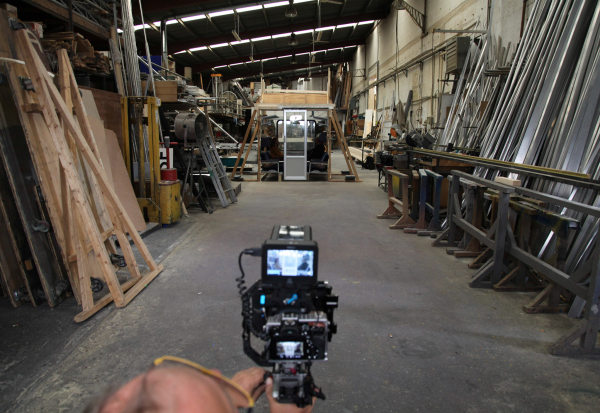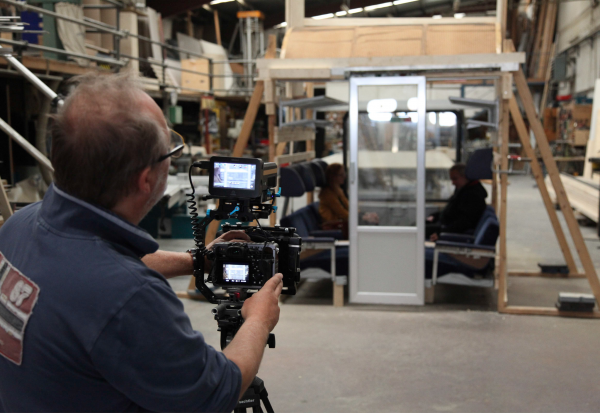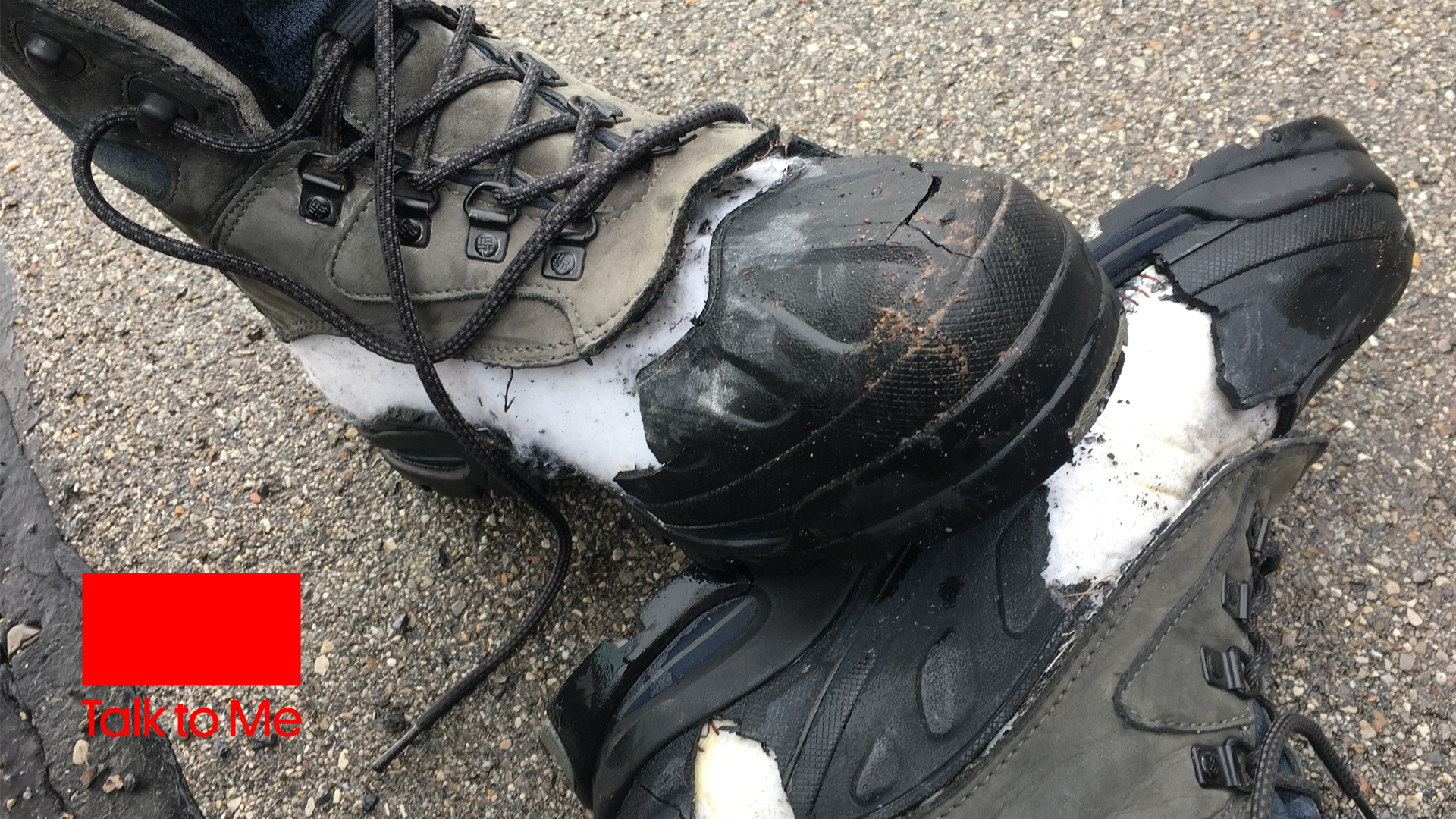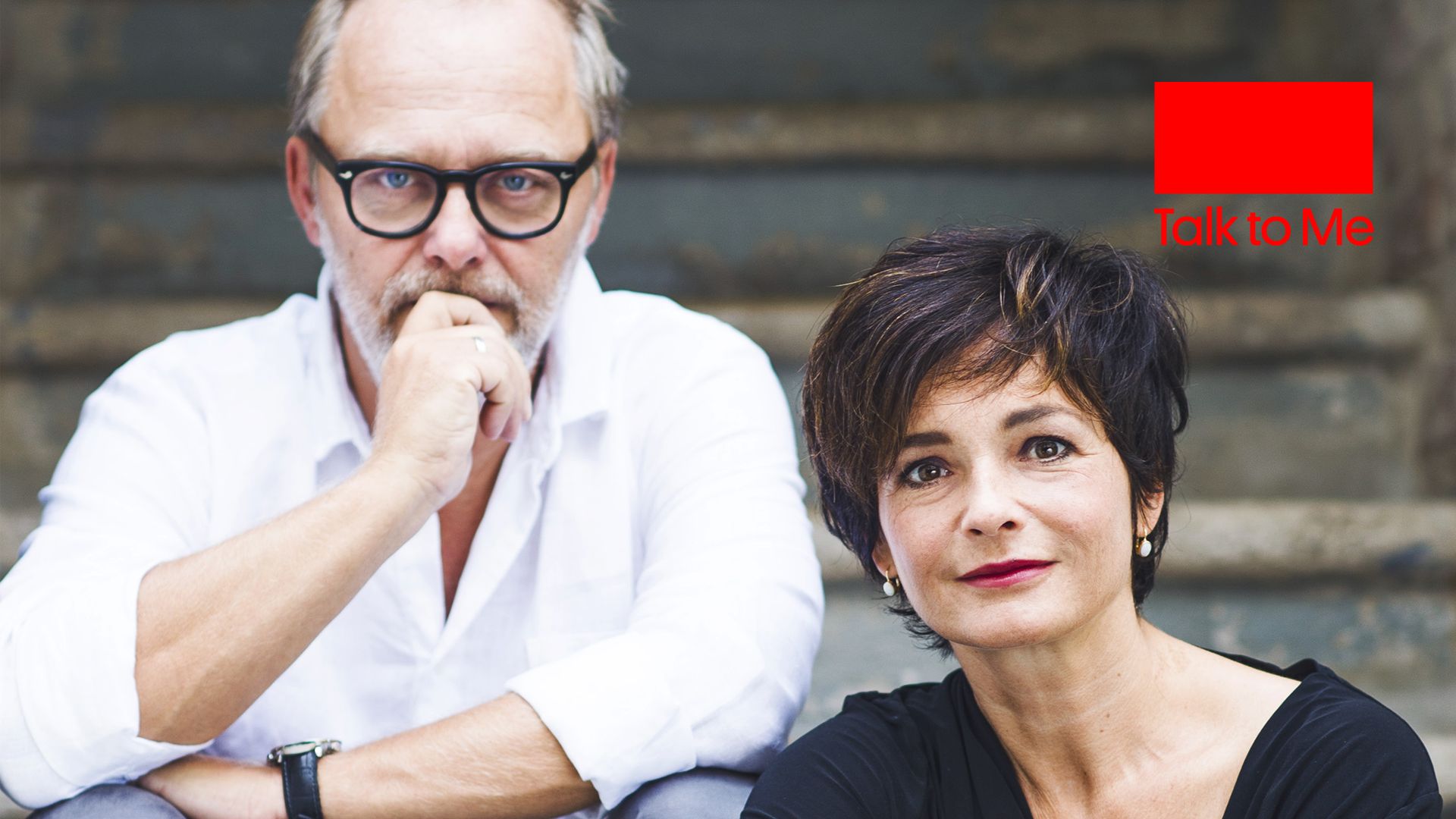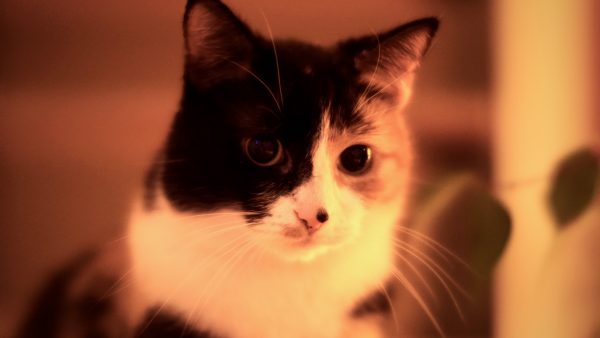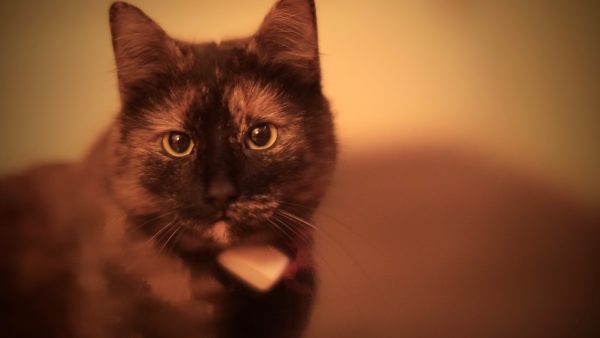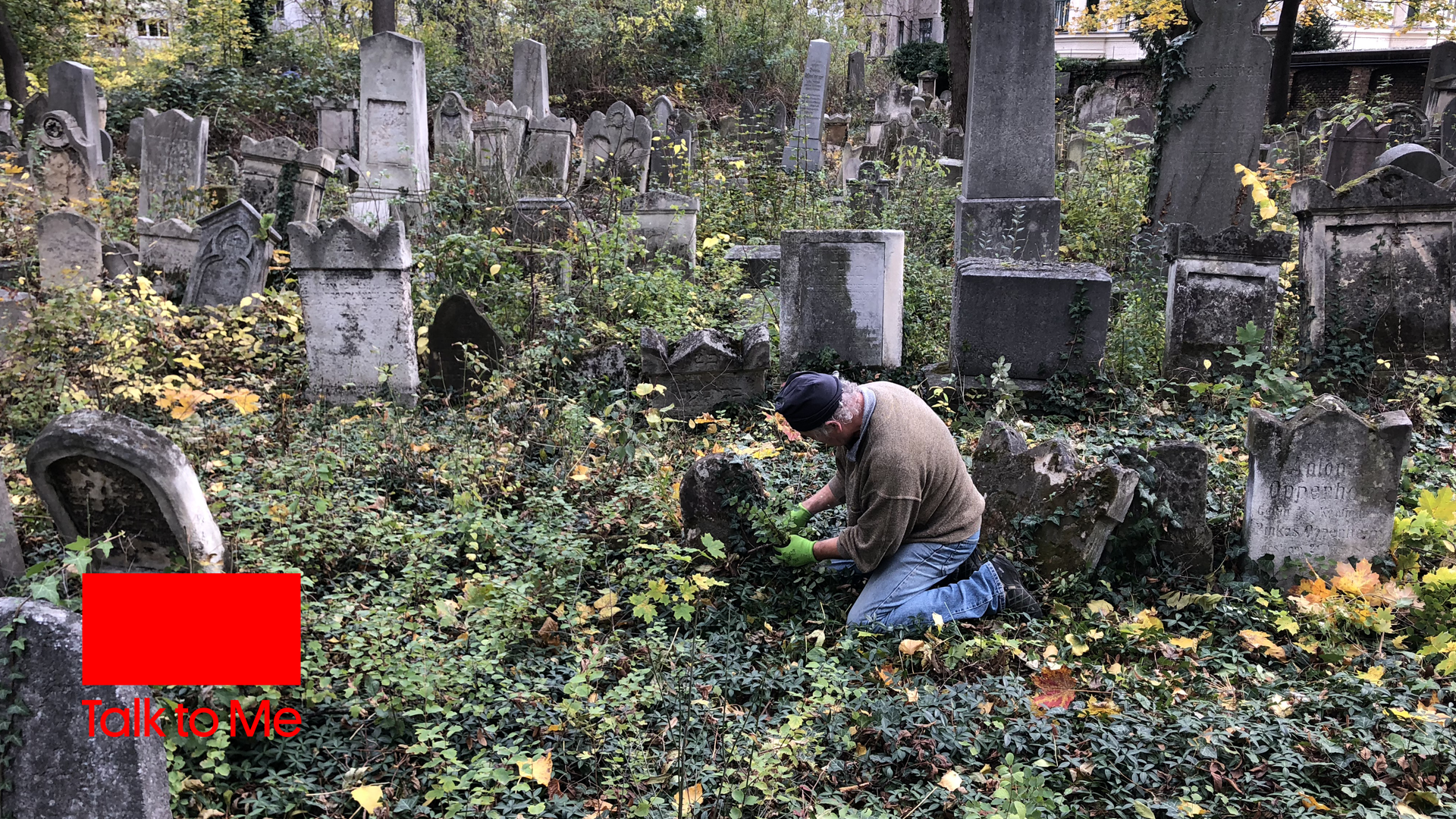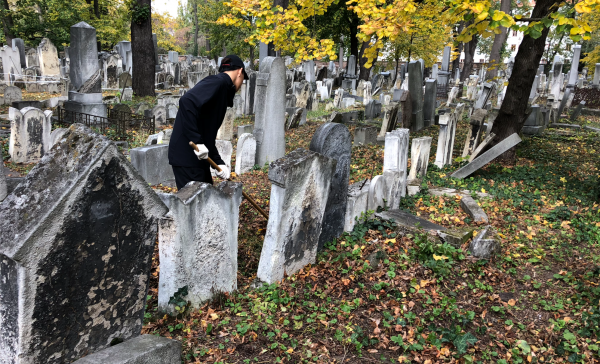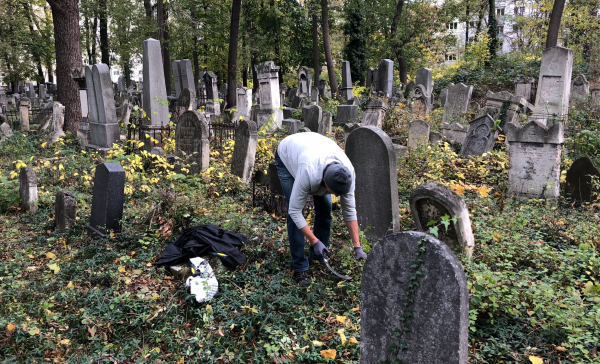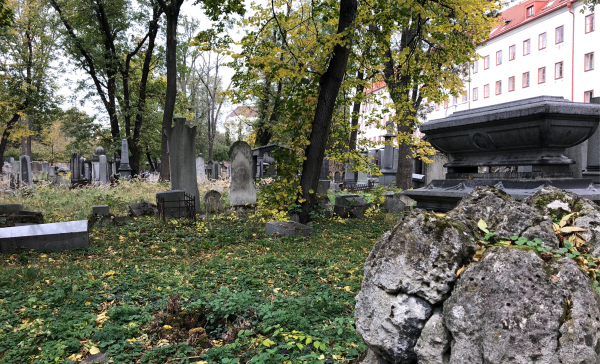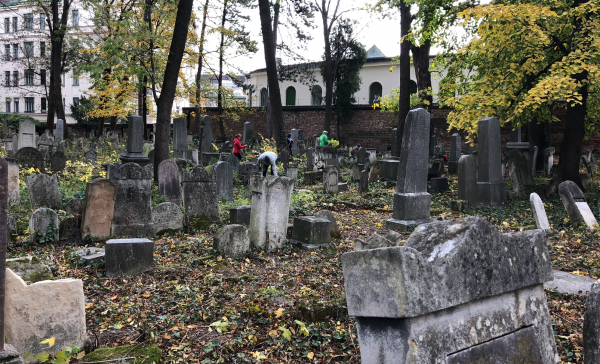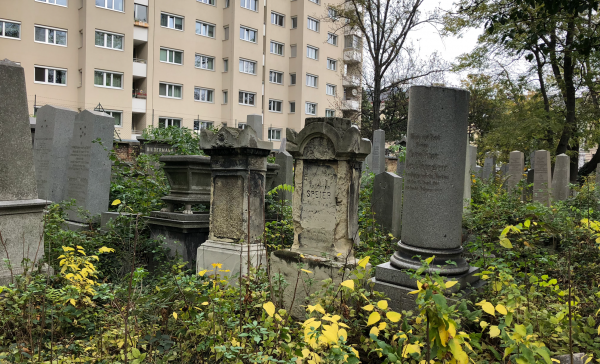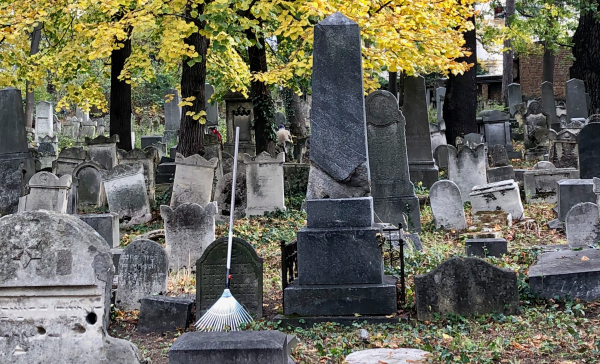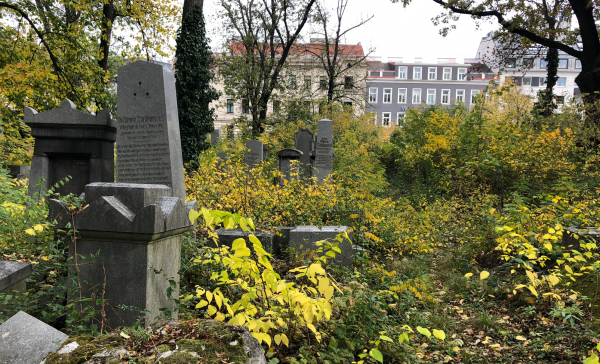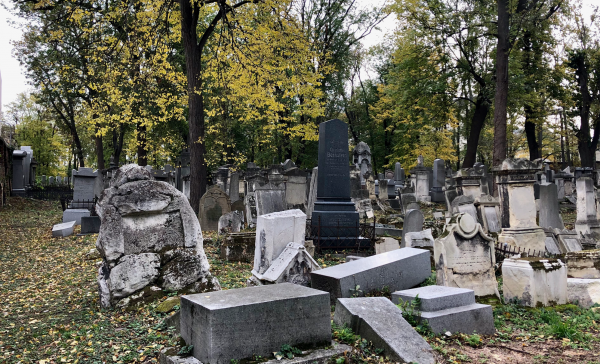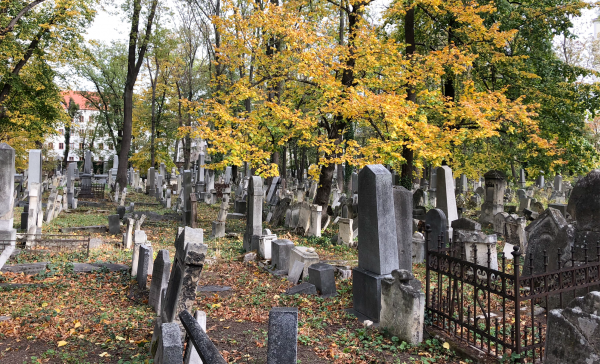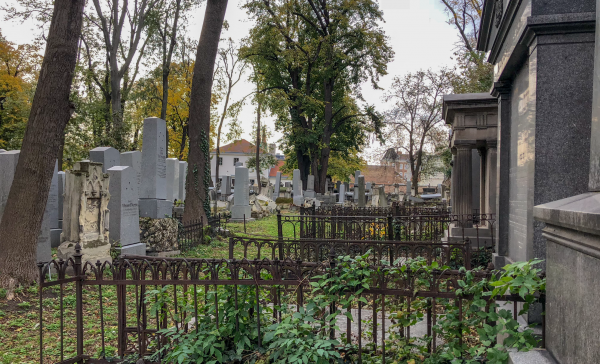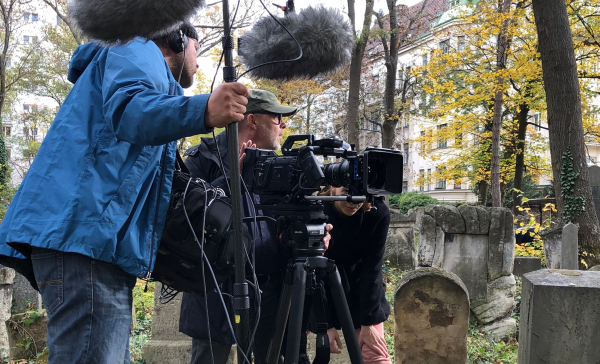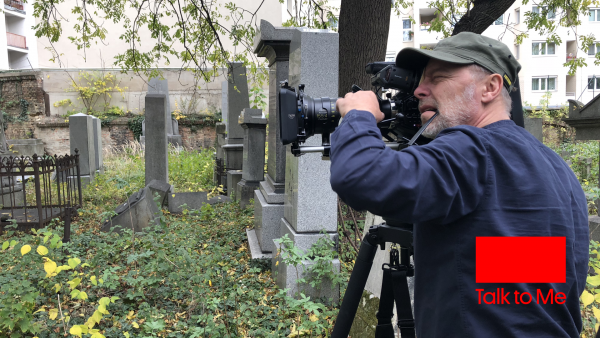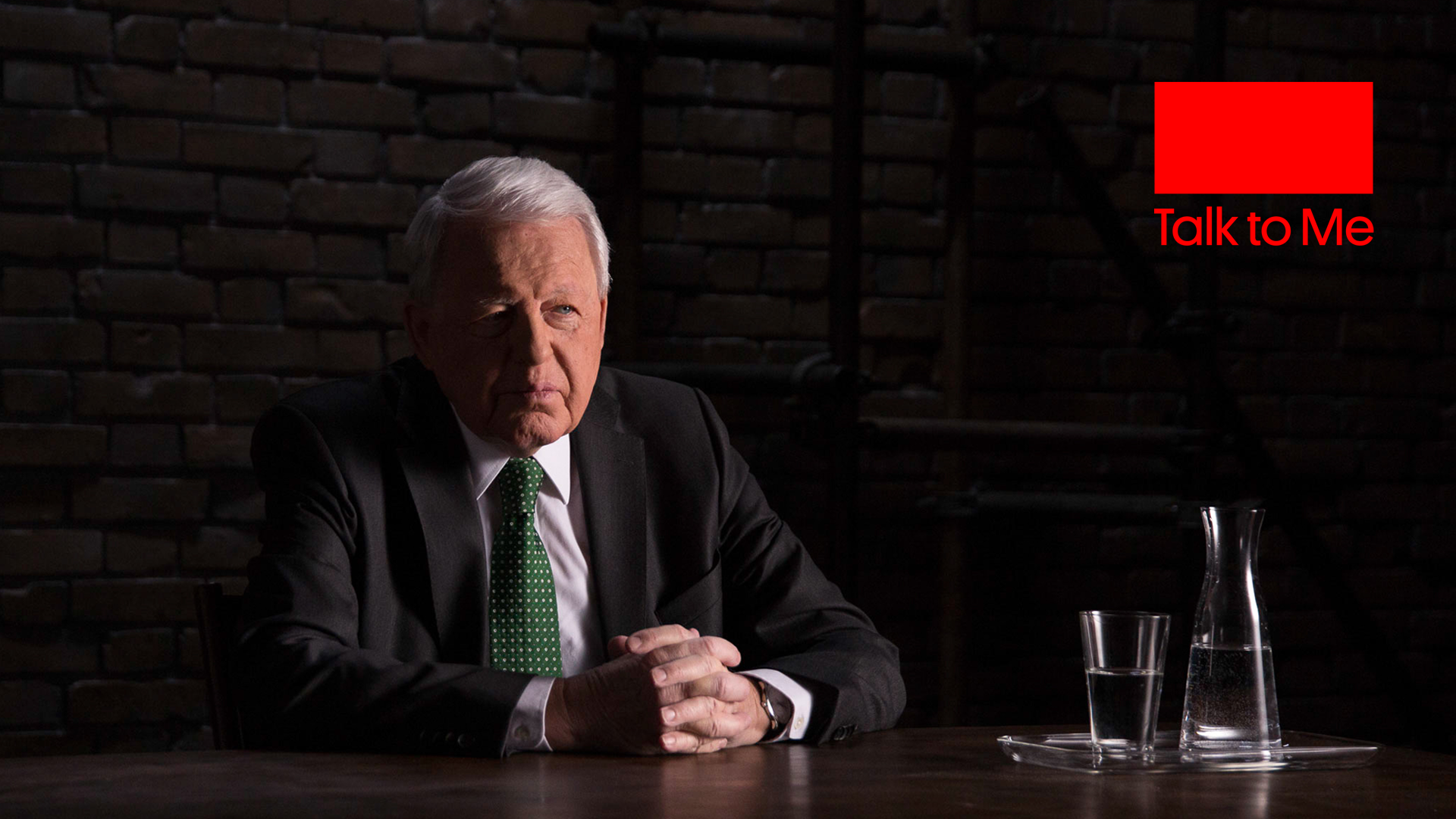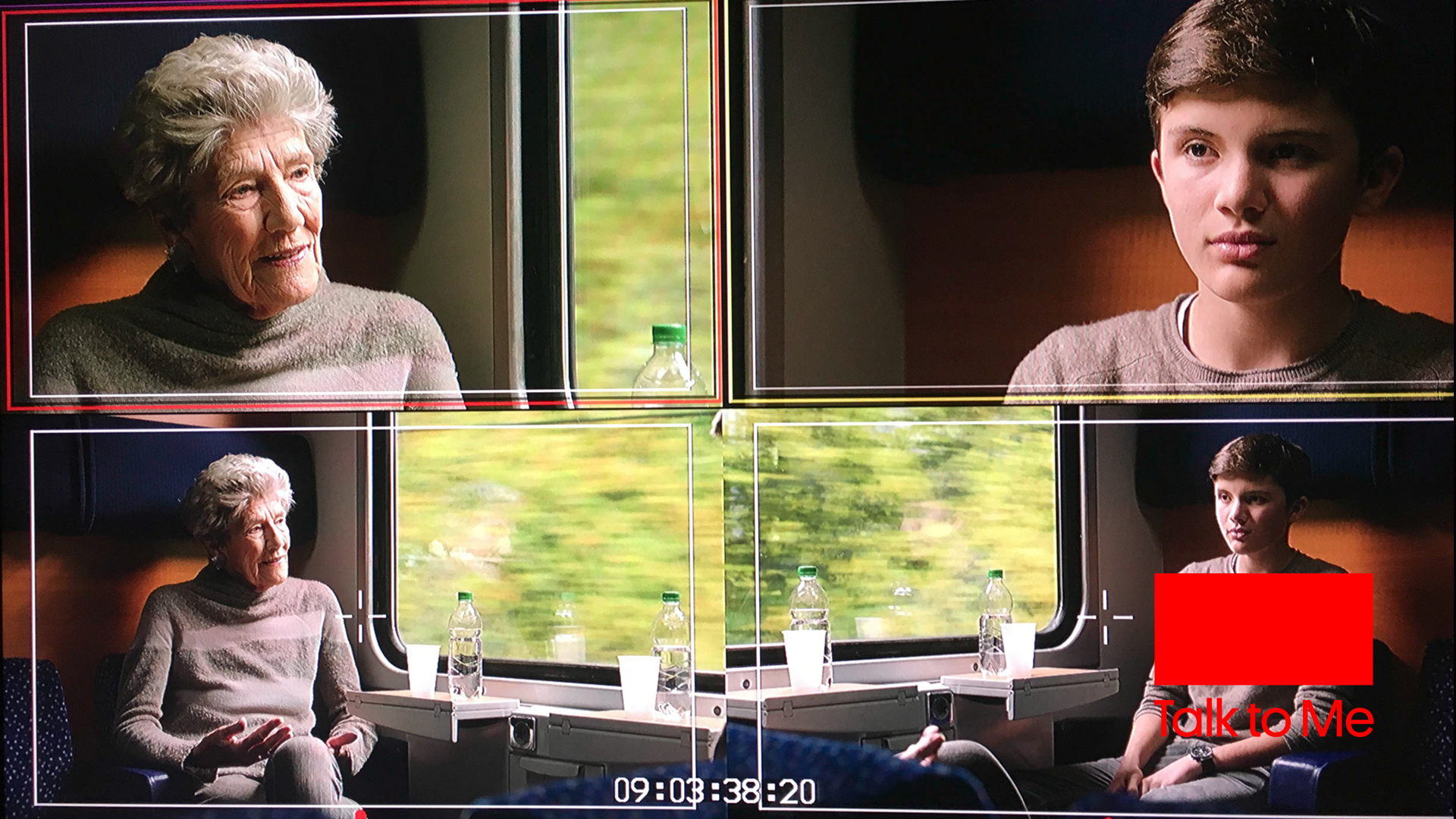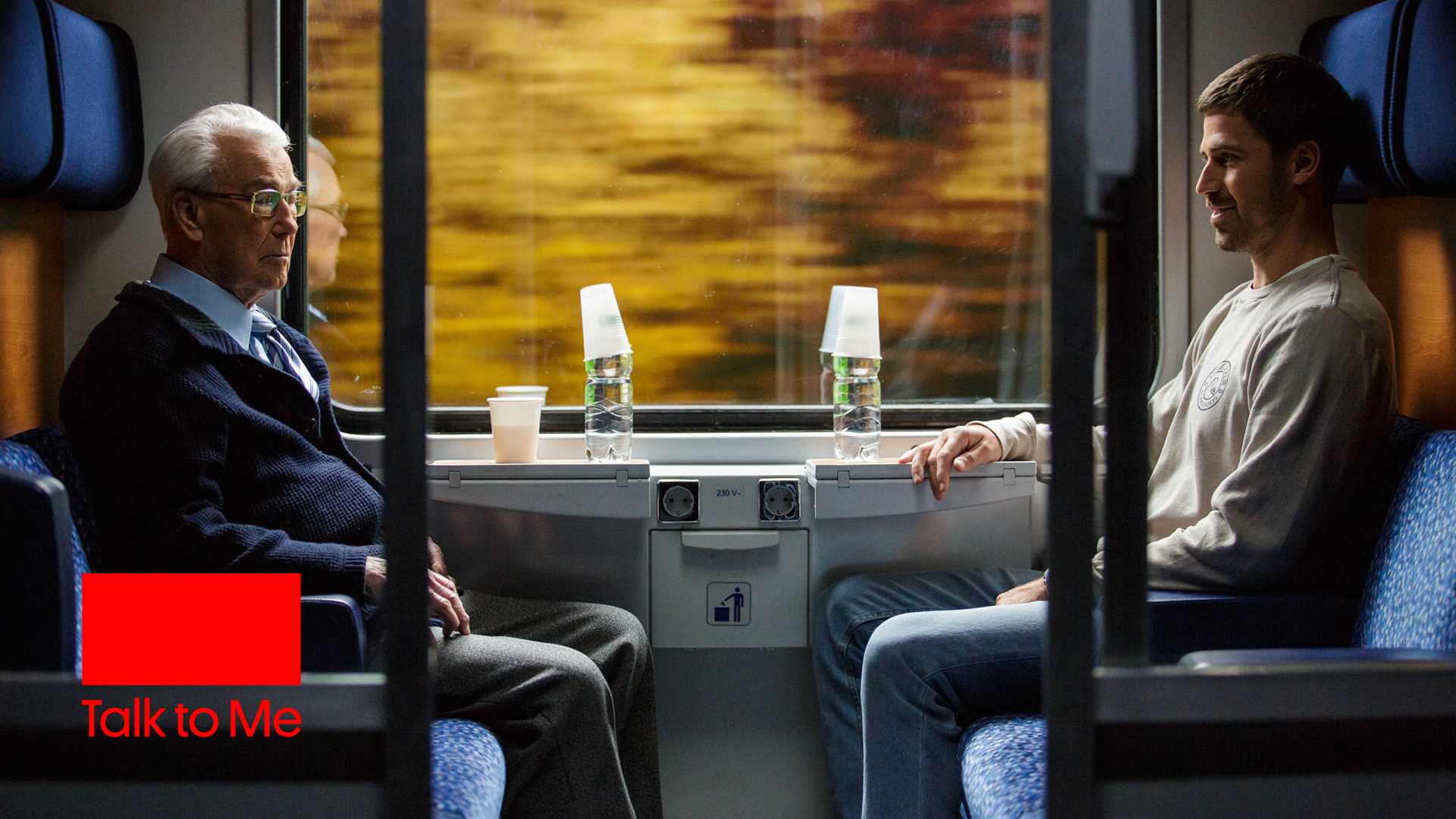This is my diary’s entry from February 1st 2019 – exactely one year ago. We where traveling to Terezin, Auschwitz-Birkenau, Mauthausen and Dachau to shoot additional footage.
European landscapes and in between concentration camps that have been made into memorials. Visitors lost in small groups over the endless yard of the Dachau concentration camp. Affected students whispering piously, teachers lectureing with soft voices.
Thousands of kilometres, pictures, words, so many memorials and museums. The ice flower at the window of a barrack in Mauthausen. I think of Aba Lewit. Whoever survived the Holocaust was lucky. Luck. Pure luck. Coincidence.
We are pressing our footsteps into the untouched, hard snow of the concentration camp in Landsberg am Lech. My winter shoes are broken. The rubber dissolves from the leather, small black pieces crumble, putting their own trail in the snow. Herbert Schrott’s father froze here in the winter of 1944/45. A few weeks later the camp was freed by the US Army.
The head of the Landsberg am Lech memorial tells me that the camp was always as clearly visible from the road like it still is today. The upperclass from Landsberg was invited to concerts in the camp. The ladies came in summer dresses wearing large hats. Everybody knew it. The Volk has democratically elected Hitler into power. The united German Reich has decided to extinguish over 6 Millions Jews.
I am filming the view of the camp, paning from the street to the semicircular concrete barracks, over which the snow has settled like a cloth. They look like the dwellings in Peter Jackson’s Lord of the Rings. A trilogy by the way, which is interspersed with Nazi symbolism. Confusing. I feel sick.
We’re heading south, crossing the alps to Carinthia. Another dark chapter in Austria’s WWII history: Frenetical racism, nationalism and hatred, greed.
And my shoes are broken.
